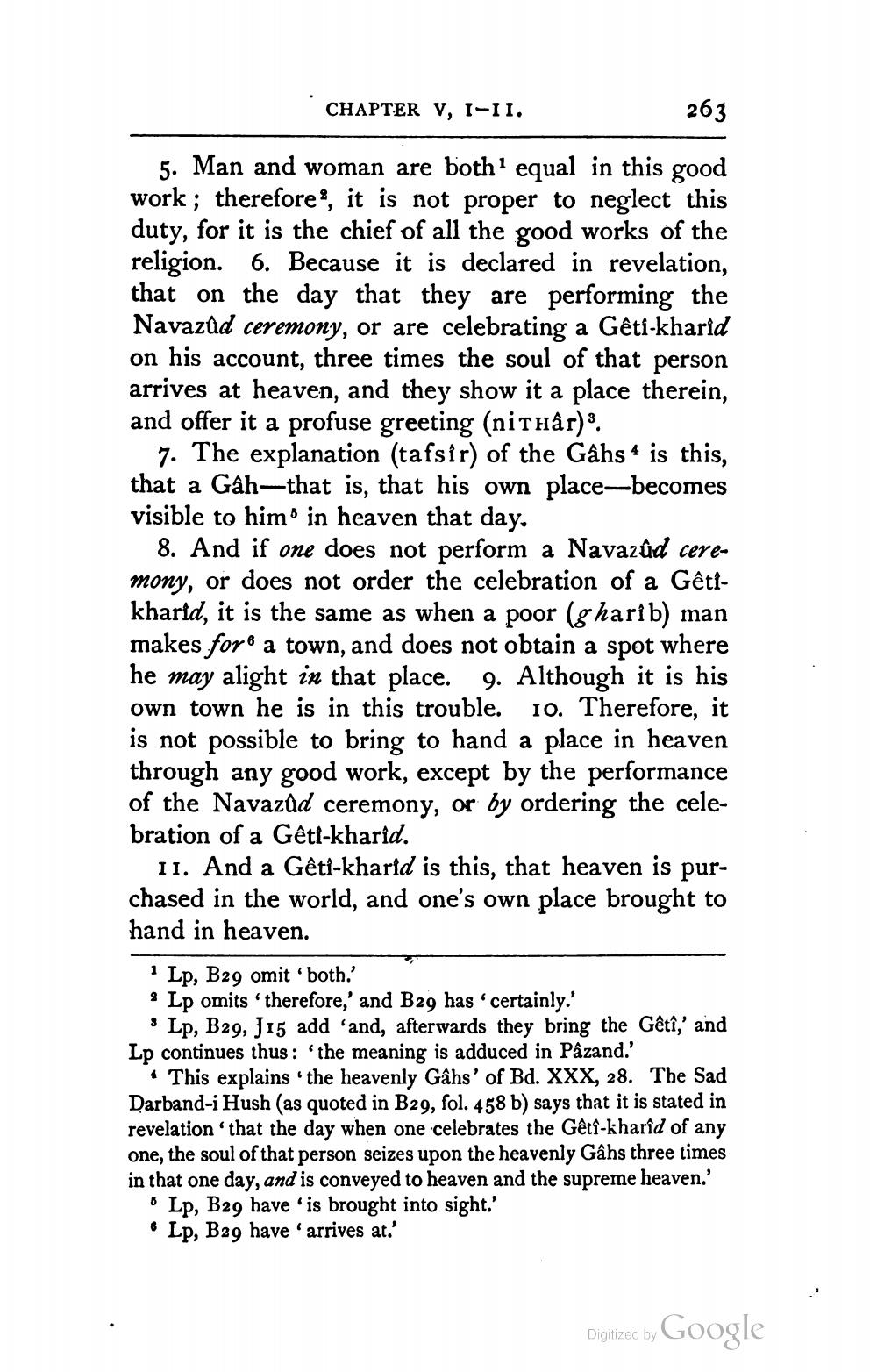________________
- CHAPTER V, 1-11.
263
5. Man and woman are both equal in this good work; therefore, it is not proper to neglect this duty, for it is the chief of all the good works of the religion. 6. Because it is declared in revelation, that on the day that they are performing the Navazad ceremony, or are celebrating a Gêti-kharid on his account, three times the soul of that person arrives at heaven, and they show it a place therein, and offer it a profuse greeting (nithâr) 3.
7. The explanation (tafsir) of the Gâhs 4 is this, that a Gâh-that is, that his own place-becomes visible to him in heaven that day.
8. And if one does not perform a Navazûd ceremony, or does not order the celebration of a Gêtikharid, it is the same as when a poor (gharib) man makes foro a town, and does not obtain a spot where he may alight in that place. 9. Although it is his own town he is in this trouble. 10. Therefore, it is not possible to bring to hand a place in heaven through any good work, except by the performance of the Navazad ceremony, or by ordering the celebration of a Gêti-kharid.
11. And a Gêti-kharid is this, that heaven is purchased in the world, and one's own place brought to hand in heaven.
Lp, B29 omit both.' 9 Lp omits therefore,' and B29 has certainly.'
Lp, B29, J15 add 'and, afterwards they bring the Gêtî,' and Lp continues thus : 'the meaning is adduced in Pâzand.'
This explains the heavenly Gâhs' of Bd. XXX, 28. The Sad Darband-i Hush (as quoted in B29, fol. 458 b) says that it is stated in revelation that the day when one celebrates the Gêtî-kharid of any one, the soul of that person seizes upon the heavenly Gâhs three times in that one day, and is conveyed to heaven and the supreme heaven.'
* Lp, B29 have 'is brought into sight.' . Lp, B29 have arrives at.'
Digitized by Google




